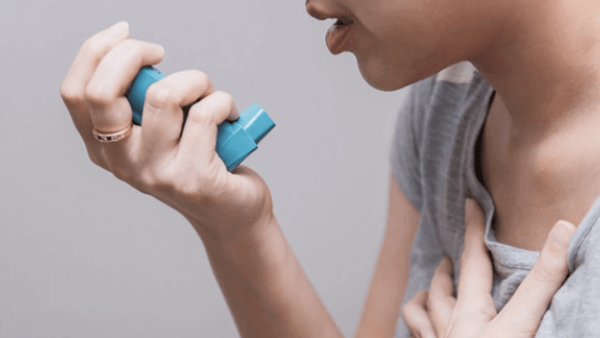February 2021 Newsletter
February Newsletter

Canada’s best-known weather-predicting groundhogs called for an early spring on Tuesday February 2nd as they delivered their annual forecast virtually due to the COVID-19 pandemic.
This is great news for Canadians! With spring right around the corner, what are you doing to keep healthy and active over these last weeks of winter?
The Prime Care Family Health Team is constantly thinking of you & your family’s health and we hope that these newsletters assist you with maintaining a healthy lifestyle by educating and informing you on ways to prevent illness and promote a healthy life. Each month we will focus on a few key initiatives and best practices to help our community stay active and stay healthy.
In this newsletter, we’ve included information for managing heart health, understanding eating disorders, and tips on managing asthma. We’ve even snuck in a delicious & healthy Beef and Pineapple Noodle recipe to help you when planning out next week’s dinner menu! As well, in this edition we are featuring one of Milton’s own, Anne Ptolemy, in our section called Changing Lives. Read Anne’s inspiring message of hope and resiliency as we learn about her journey as a caregiver.
We would love to hear from you so drop us a line to let us know what you are interested in learning more about. Enjoy these last weeks of winter!
National Eating Disorders Awareness Week
February 1st – 7th, 2021 was National Eating Disorders Awareness week here in Canada.
If you or someone you care about are suffering from an eating disorder, we want you to know that there is assistance available.
The National Eating Disorders Information Centre (NEDIC) operates Canada’s only national toll free helpline and instant chat providing information, resources, referrals and support to Canadians affected by eating disorders.
NEDIC believes that through open, supportive dialogue, we can help break the shame, stigma and silence that impacts nearly 1 million Canadians living with a diagnosable eating disorder — and the millions of others who are struggling with food and weight preoccupation.
NEDIC Resources:
Instant chat is available from 9am – 9pm Monday – Thursday and Friday’s from 9am to 5pm.
Emails are also answered during those hours.
The NEDIC helpline (1-866-633-4220) and (416-340-4156) will be open from 11am to 7pm
Monday – Thursday and Friday’s from 11 am – 5pm.
All times listed above are in Eastern Standard Time.
We strongly encourage you to reach out over chat or email if you need assistance.
At the moment, NEDIC is closed to walk-in clients to due COVID-19.
Visit the NEDIC website for valuable and helpful resources:
www.nedic.ca or www.nedic.ca/help-for-someone-else\

Heart Health
With Valentine’s Day around the corner, we wanted to take a minute to discuss the importance of healthy living and more specifically, your heart health!
DID YOU KNOW?
8 out of 10 cases of premature heart disease and stroke cases are preventable through healthy lifestyle behaviours! This alarming state explains just how crucial it is that we make healthy lifestyle choices for ourselves and for our families.
What you can do to live a healthy life:
1. Eat Well
Your diet plays a major role in your overall health and wellness. You can improve your heart and brain health by eating a healthy balanced diet filled with fruits and vegetables, whole grains and protein. Limiting the amount of processed foods we consume is also very important when it comes to preventing heart disease and stroke and is one of the best things you can do to achieve a healthier diet.
2. Get Moving
Exercise benefits us in so many ways! Regular activity helps us sleep better, stress less and to slow the decline of aging! Additionally, exercise helps regulate mood, improve digestion and of course, dramatically lower your risk of heart disease and stroke. Wondering just how much exercise you need? Heart and Stroke recommends adults accumulate at least 150 minutes of moderate to vigorous intensity aerobic physical activity per week, in bouts of 10 minutes or more.
3. Maintain A Healthy Weight
Achieving a healthy weight is an important step in promoting your heart and brain health, and it isn’t easy. Weight loss is a challenging goal and should be met with a positive attitude and patience. But it’s worth it in the end.
4. Stop Smoking
Tobacco use increases your risk of developing heart disease and stroke. Smoking contributes to the buildup of plaque in your arteries, increases the risk of blood clots, reduces the oxygen in your blood, and makes your heart work harder. In fact, smokers are two times more likely to have a heart attack or stroke and are two times more likely to die from them. People who smoke 25 cigarettes a day or more have three times the risk for heart attack or stroke and are nearly five times more likely to die of heart disease or stroke.
5. Reduce Stress
Almost one quarter of Canadians say they have a high degree of stress. Recognizing your stressors is an important step. To assess our stress management skills and stressors, take this short 5 minutes Stress Test. Once you’ve recognized your stressors, the next step is to find out how to cope with your stress. Here are some helpful tips for managing stress.
For more information on heart health and how you can improve your overall wellbeing, visit the Heart and Stroke website here.

Managing Asthma
Download these new and free fact sheets to help you work with your healthcare provider to get and keep your asthma under control. We also share what high-quality asthma care looks like so you know what you should expect based on the Ontario Health Asthma Quality Standards.
·Download: Understanding your asthma care quick reference guide
·Download: Understanding your child’s asthma care quick reference guide
·Download: Asthma quality standards for healthcare professionals
Changing Lives
A letter from a Anne Ptolemy, a caregiver in the Halton region:
It has been almost 12 years, since Doug collapsed on the bathroom floor, he was having a stroke. The ambulance got him to the hospital in a very short time and he came around in a few hours. Unfortunately, it was decided to give him a clot busting needle and he went into a more severe stroke, suffering paralysis and went right into the ICU.
This can happen sometimes, very unfortunate, it has been called the 10 percenters, I am told. We must be aware that this is a chance we take, when receiving the needle.
A few years later, after a urinary tract infection, he developed spasticity and Botox injections were recommended and a help.
Then a year and a half ago, he fell and fractured his hip, on the paralyzed side.
This created more difficulty for his ability to walk, but with help each day, we still have a walk through the house. He is still a positive person and has shown amazing courage.
I am a Physical and Occupational Therapist and this has helped in his recovery by knowing what can help. We still do daily exercise and try to find interesting ways to spend each day. With thought, life can still be a happy one, we must stay positive.
During the Pandemic, life has changed significantly.
Our family, of four adult children, has been kept away. We all have our own bubbles.
This is the routine of so many of our friends, as well. We are all trying to follow the recommendations and it is what we must do to get past this ongoing challenge.
Personal Support Workers come twice a day to help Doug. We are grateful to them and the Paramed and March of Dimes agencies, for staying the course and continuing with the personal care they provide. They have become our social visitors as well, all with pleasant natures, the only ones that have come in to the house over the last year.
There are needs we must deal with.
Hair and nails keep growing, for both of us. I try to trim both, but it is not easy and no help is offered.
As we are getting older, both of us are 86, it is harder to keep up with cleaning our house, my cleaning woman has not been in for a year and I now do it myself. Again, no help is offered.
In the warmer weather, I have asked for help with the outdoor opportunities we would appreciate. A walk with the wheelchair on a pleasant day, I must do myself, PSWs are not permitted to take a patient outside and off the property.
My family are not able to be in the house and not present in our lives very often. They live out of town, a distance away.
They do help when a doctor’s appointment is planned, a car ride with masks and separation in the car. Shopping can be dropped off at the door, treats included. The family have been very thoughtful!
I remember my mother’s Red Cross caregiver so many years ago, taking mom out for walks, their favourite activity. Mother was living with increasing Vascular Dementia, the walk in the neighbourhood, gave her a chance to smile at old friends and maybe remember them with those moments. Mother too, had a visit from Halton Helping Hands to keep her house clean, I sometimes helped with the visits and ended up, serving on the boards. I was very grateful for the many kindnesses she and Dad received.
We must look at how home care provides “a quality of life” for the many people it helps.
The fear of liabilities has changed the amount of support that can make life better for those whose lives are limited by their physical limitations. Often spouses are elderly too and not as fit as they were before. This deserves attention.
As 24/7 caregivers, we might be receiving some attention for our needs, as well.
It would be a kindness to have a study of ways to improve the supports for both patient and caregiver. The family health team have been wonderful, in providing us with regular visits from the nurse, Julie. Having a professional visitor, one that we can share our experiences with, has been such a comfort. She keeps an eye on our health concerns, so very much appreciated.
We miss our families the most, so much of life is focused on being in each other’s lives. We are strong in making the best of the unfortunate reality we must deal with.
I think families are closer now, they miss the closeness of the shared past. We are all looking forward to the end of this long marathon. We have met the test, now to begin normal life again. Whoosh!
Anne and Doug Ptolemy

Beef Pineapple Noodles
Make no bones about it – you need protein in addition to calcium and vitamin D for strong and healthy bones. Protein gives bone its strength and flexibility and is also a big component of muscles, which are crucial for mobility and in preventing falls.
Beef Pineapple Noodles is a great dish as it tastes amazing and is packed with protein and healthy vegetables! To bump up the calcium in this dish, try adding some bok choy or broccoli to the mix (YUM)! Each serving of this delicious meal has 29g of protein.
To make this a gluten free recipe, be sure to buy a gluten free beef broth and curry paste.
Get the recipe here!

Prime Care Family Health Team
#110-470 Bronte Street South
Milton, ON
L9T 2J4
Tel: (905) 878-1720
Fax: (905) 878-7857
www.primecarefht.ca